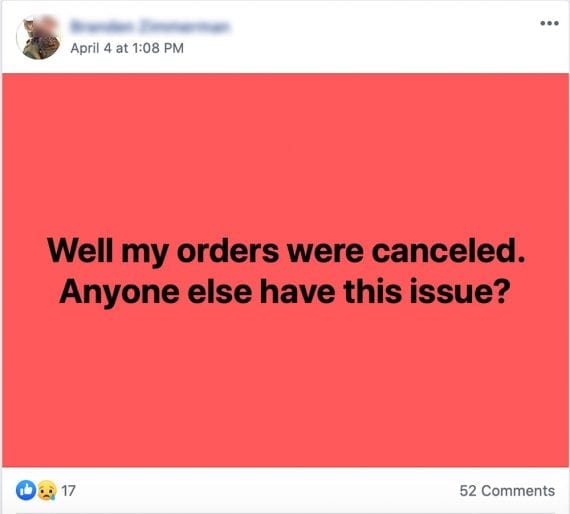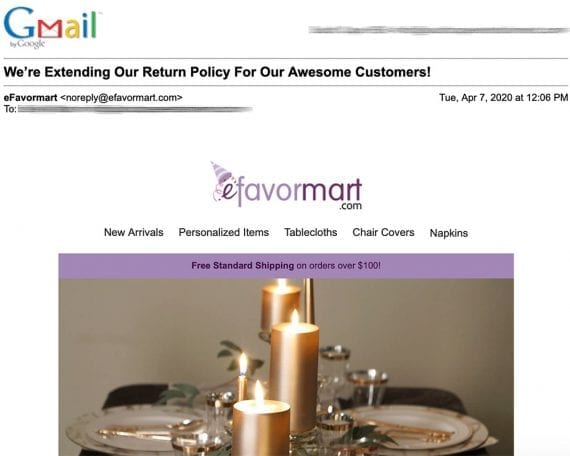The coronavirus is raising the visibility of ecommerce among consumers. Merchants, especially those selling so-called “essential” goods, have experienced a boost in sales.
Thus Covid-19 represents an opportunity for online sellers to retain new customers over the long term, not just during the temporary shelter-in-place restrictions. But many merchants are failing to capitalize.
What follows are tips to consider now, to help retain those new customers when the pandemic passes.
Retaining Customers
Get inventory counts under control. The forgiveness level of overselling published inventory has decreased substantially. With so many retailers running out, consumers are scrambling online to find everyday essentials and trending products.
Avoid canceling orders in any part. Cancelations usually generate the loudest complaints on social media, affecting both short- and long-term sales. The screenshot below is from a Jo-Ann Stores’ sewing group on Facebook.

More people are expressing disappointment on social media, such as this example from a Jo-Ann Stores’ sewing group on Facebook.
Convey accurate future availability. Err on the side of caution when displaying lead times on both out-of-stock and custom products. With supply chain and workforce interruptions, it’s best to extend the availability date and surprise customers with early deliveries. If an out-of-stock item won’t likely return any time soon, consider disabling it from the store’s browse and search results.
Send tracking numbers as soon as items ship. Merchants have no control over carrier delays. But keeping customers aware of when their order left your hands can lessen customer service inquires while maintaining the promise of fast turnaround times. Politely remind customers that you did your part.
Provide personalized service. Take whatever steps you can to personalize the shopping experience. Send order status updates and follow-up emails. Find ways to reach out later, too, so shoppers will remember your company.
Don’t over-capitalize. Perception is everything. Don’t give shoppers the impression you’re only about making money. Find unique ways to maintain a personal connection beyond selling products. Give back and help out.
Extend the return and exchange period. It’s unfair to expect home-bound customers to pack and ship returns unless you provide pre-paid shipping labels and pickup service.
Efavormart.com, for example, has gone the extra mile. Since many customers purchase decor and accessories for scheduled events (which are now canceled due to Covid-19), Efavormart backdated the return policy to orders placed since January 1, 2020. It has extended refunds from 30 to 60 days and store credit from 60 to 180 days.

Efavormart.com backdated the return policy to orders placed since January 1, 2020. It extended refunds from 30 to 60 days and store credit from 60 to 180 days.
Avoid jokes or politics. Forget about sharing memes that make fun of the virus or politicians. Not everyone finds humor in the pandemic or agrees with your political views.
Don’t focus on the quick sale. A good number of ecommerce sites are seeing more traffic and orders. But that doesn’t necessarily translate to the long-term. Make even first-time, low-budget customers feel special.
Prioritize orders over revenue. Temporarily shift from the “fewer sales, higher profit” mentality to helping as many consumers as you can. That means focusing on orders more than revenue. Consumers are presumably putting off big-ticket purchases during Covid-19, anyway. Thus it makes sense to embrace smaller orders from first-time buyers to enable a long-term relationship.
Recognize shifts in buying habits. With states enacting “stay-at-home” orders, many brick-and-mortar stores have closed. Not all of them will survive. This makes ecommerce more important than ever. Study changes in shopping habits and use them to your advantage. Many newer and smaller brands will come out of pandemic stronger — with new, loyal customers.




